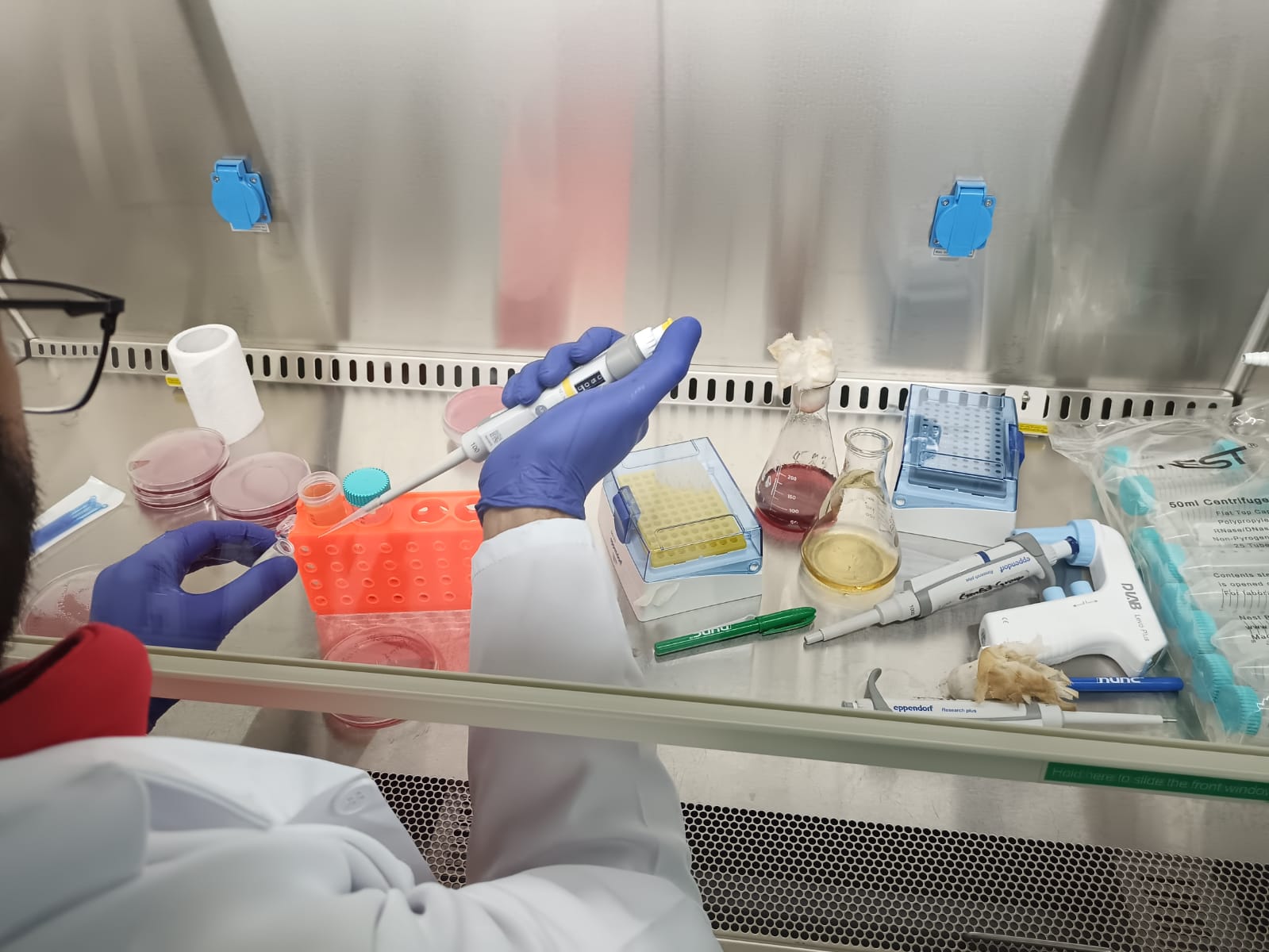Molecular Oncology

| Molecular Oncology | |
|---|---|
| Course Description | Molecular Oncology is an integrated basic science program composed of a diverse group of investigators with strengths in cancer stem cells, DNA damage repair and genomic instability, tumor-host interactions, and other fundamental areas of cancer biology. |
| Recommended Books | Bronchud MH, Foote MA, Giaccone G, Olopade O, Workman P, editors. Principles of Molecular Oncology. New Jersey: Humana Press; 2008. |
| Prerequisites | Essentials of Genetics |
| Course Learning Outcomes | After the course, students should be able to: 1. Describe general principles of cancer diagnostics and treatment. 2. Understand the basic processes underlying the transformation of a normal cell to its malignant counterpart. 3. Understand the consequences of malignant transformation on the cellular and organismal level. 4. Apply biological knowledge of cancer development in modern cancer treatment. 5. Demonstrate knowledge of laboratory techniques used in experimental cancer research. 6. Show knowledge in biostatistics and cancer epidemiology. |
| Assessment System | Quizzes: 10-15% Assignments: 5-10% Midterm Exam (MSE): 30-40% End of Semester Exam (ESE): 40-50% |
| Lecture Plan | ||
|---|---|---|
| S.No. | Description | Quizzes/Assignment |
| 1 | Introduction to Molecular Oncology | |
| 2 | Molecular Markers: Selecting the Right Targets for Cancer Therapy | Quiz 1 |
| 3 | Clinical Importance of Prognostic Factors: Moving from Scientifically Interesting to Clinically Useful | |
| 4 | Cellular and Tissue Markers in Solid Tumors | |
| 5 | Growth Factor-Signaling Pathways in Cancer | Assignment 1 |
| 6 | Estrogen Action and Breast Cancer | |
| 7 | Cyclin-Dependent Kinases and Their Regulators as Potential Targets for Anticancer Therapeutics | |
| 8 | Apoptosis Pathways: Clinical Relevance | Quiz 2 |
| 9 | DNA Repair Pathways: Mechanisms and Defects in the Maintenance of Genome Stability | |
| 10 | Angiogenesis Switch Pathways | Assignment 2 |
| 11 | Invasion and Metastasis | |
| 12 | Molecular Pathways of Drug Resistance | |
| 13 | Antitumor Immunity as Therapy for Human Cancer | Quiz 3 |
| 14 | Emerging Technologies: Molecular Targets and the Drug Delivery Process | |
| 15 | Emerging Molecular Therapies for Cancer | Assignment 3 |
